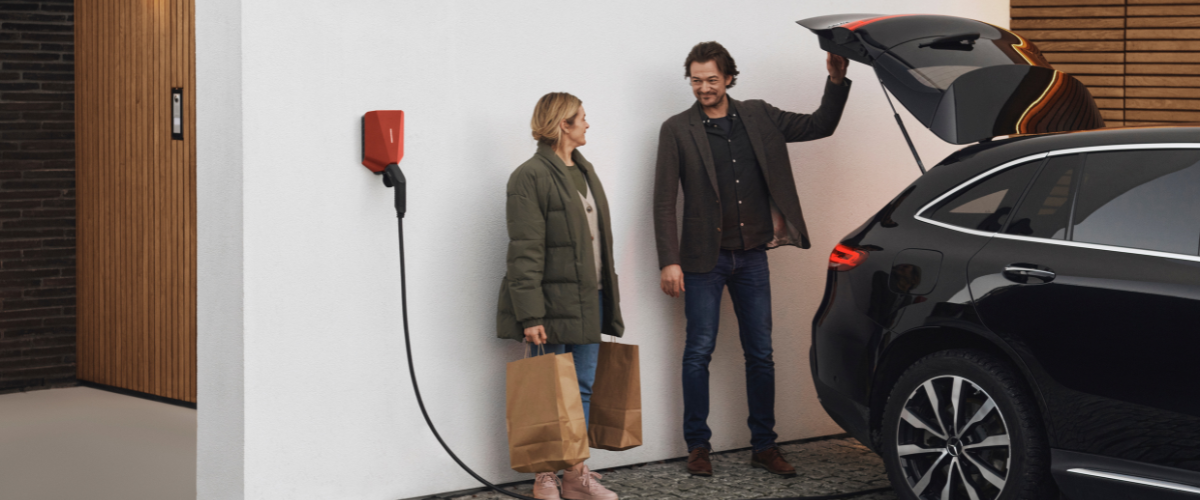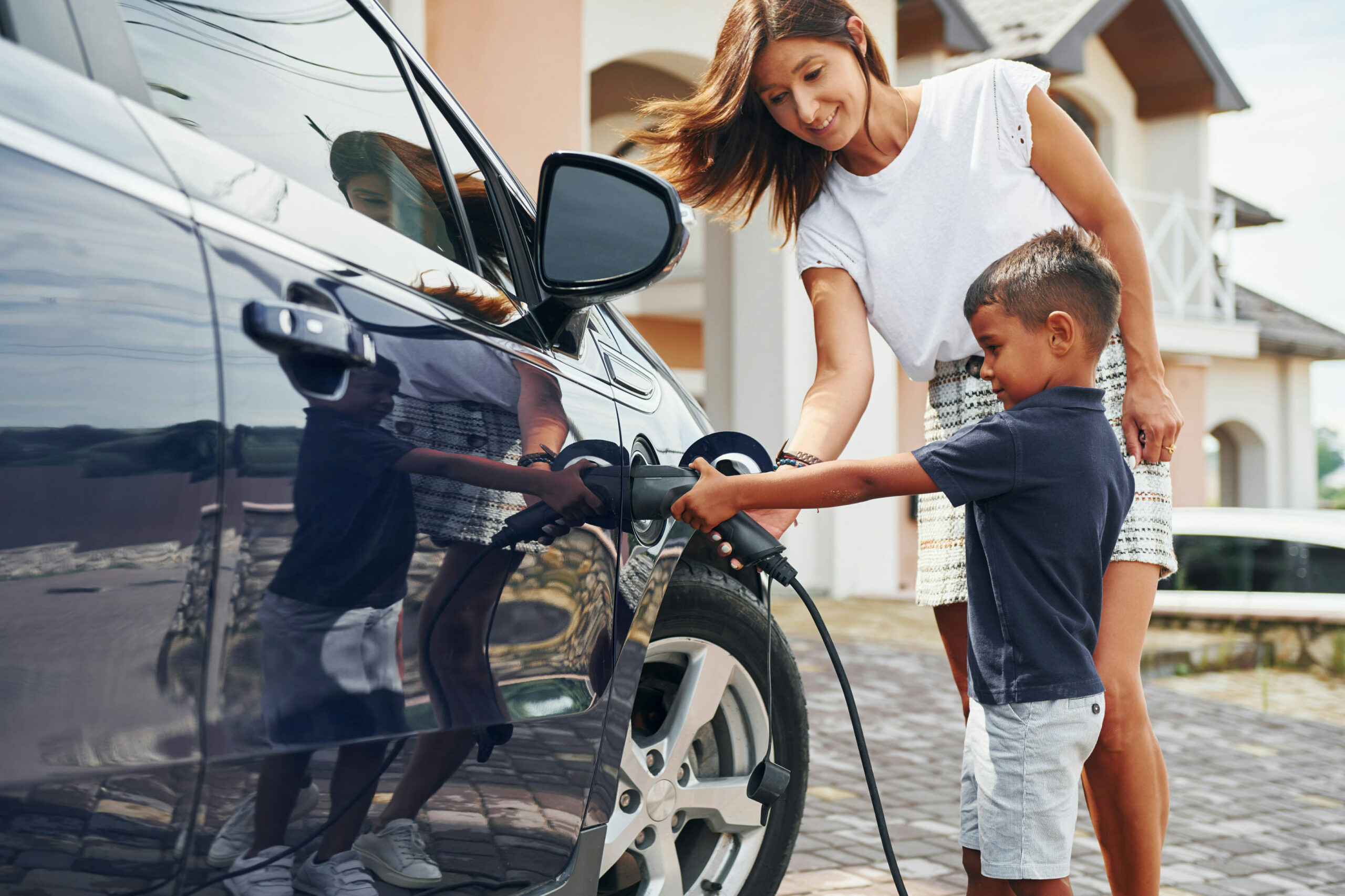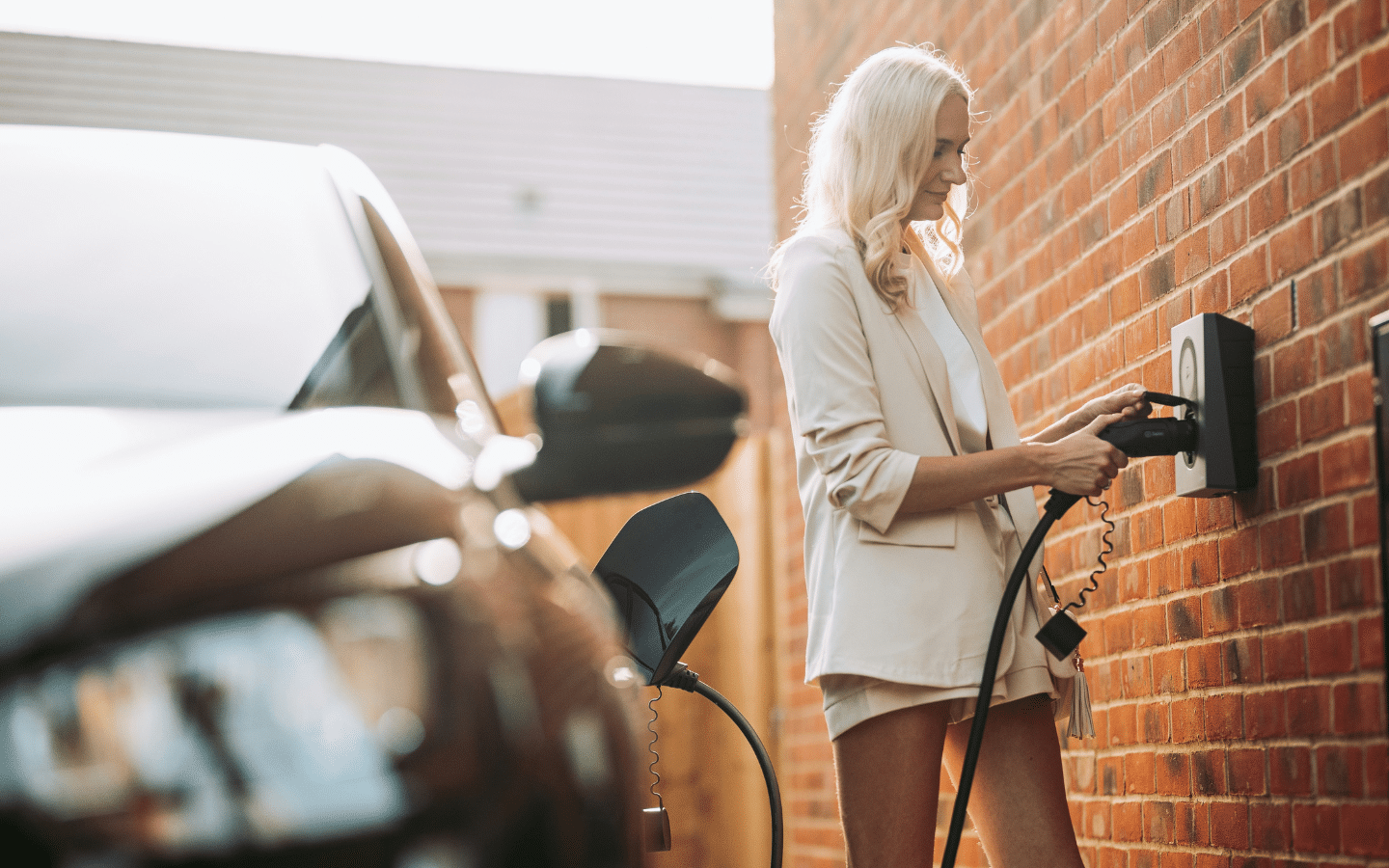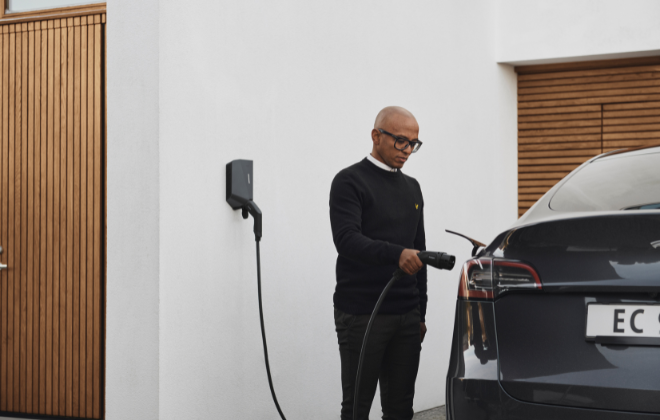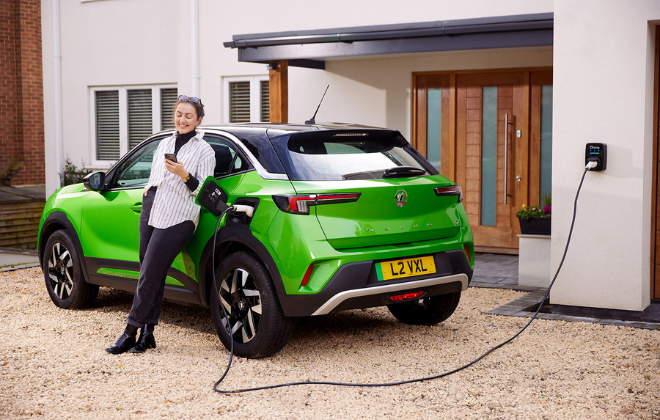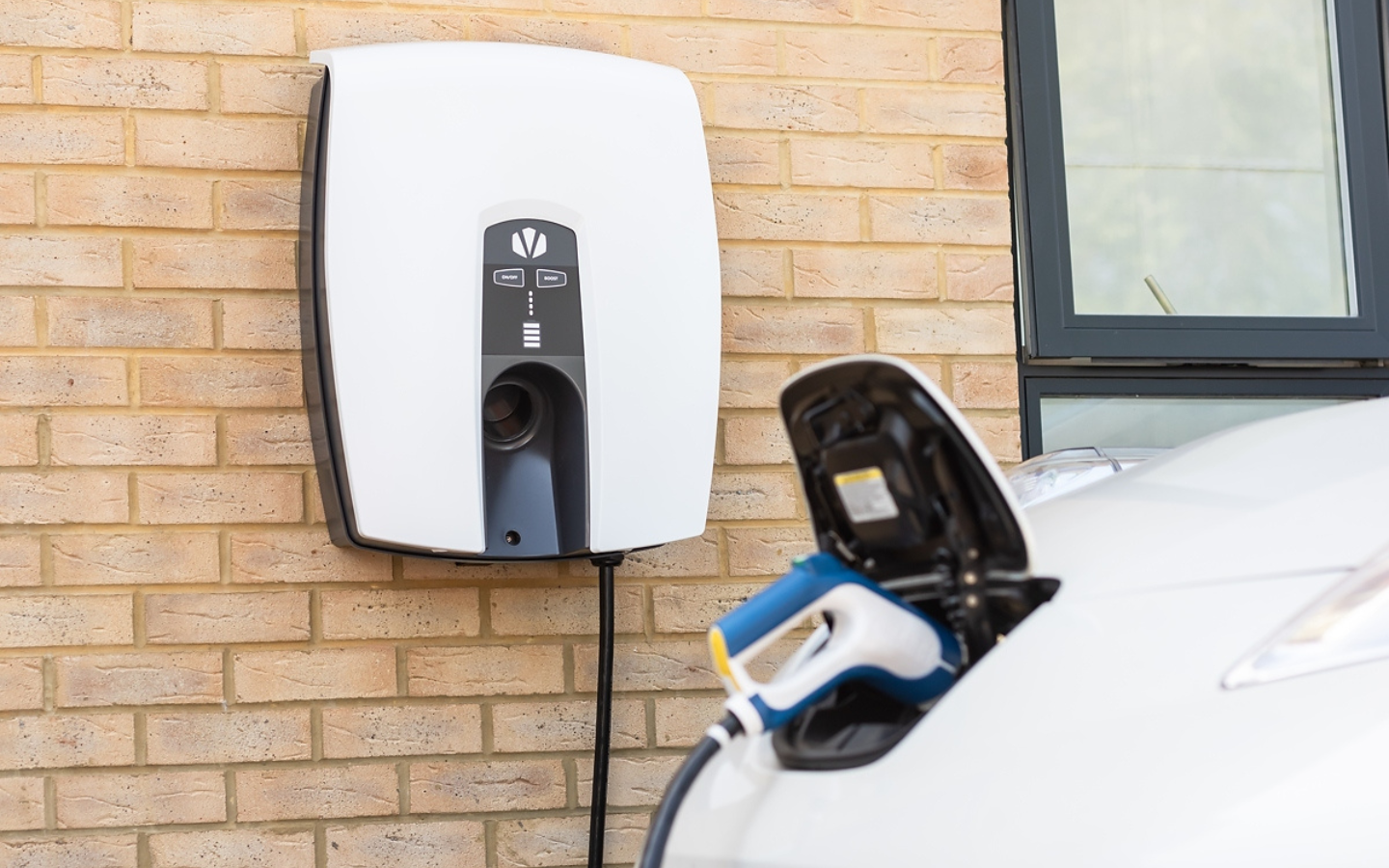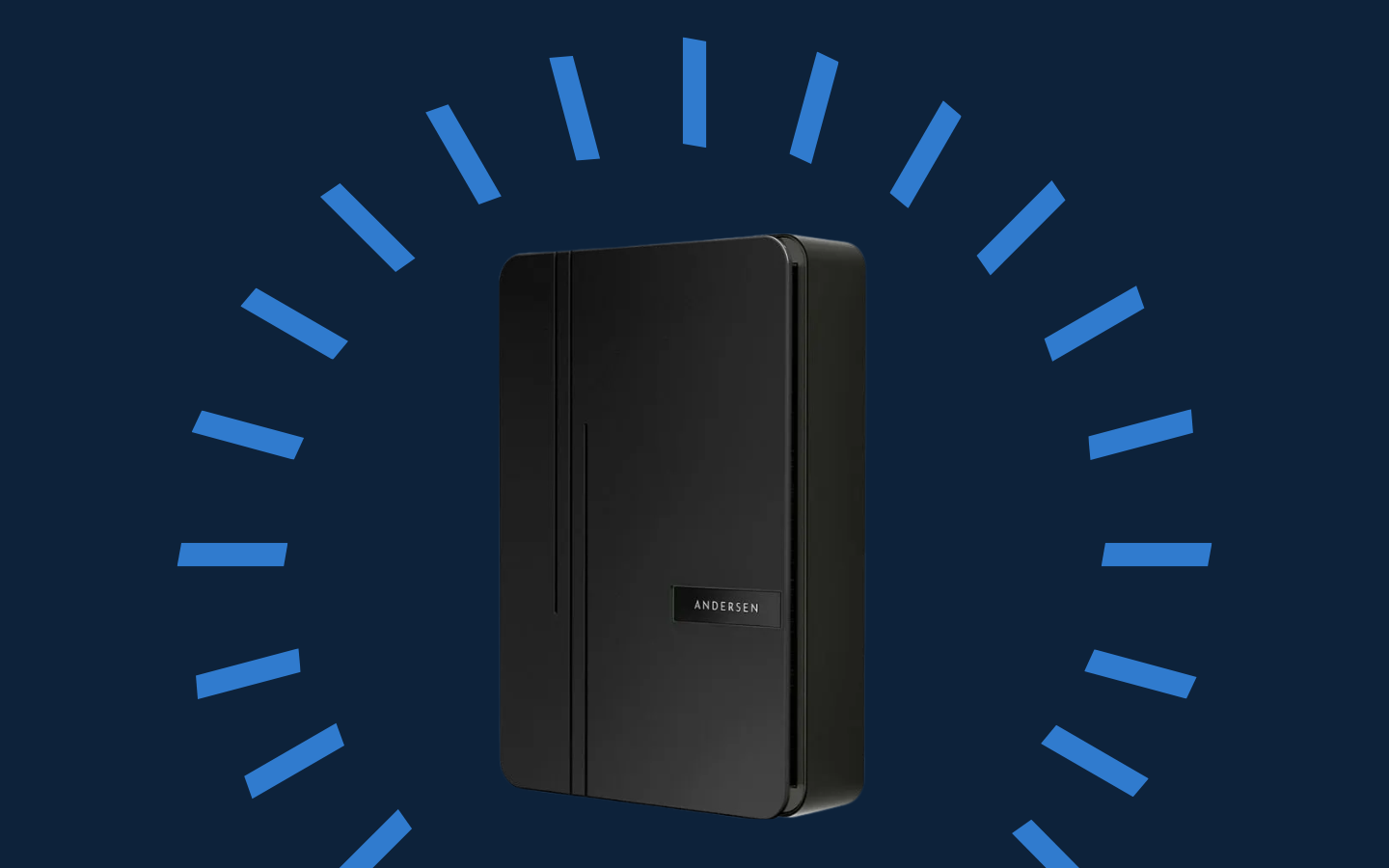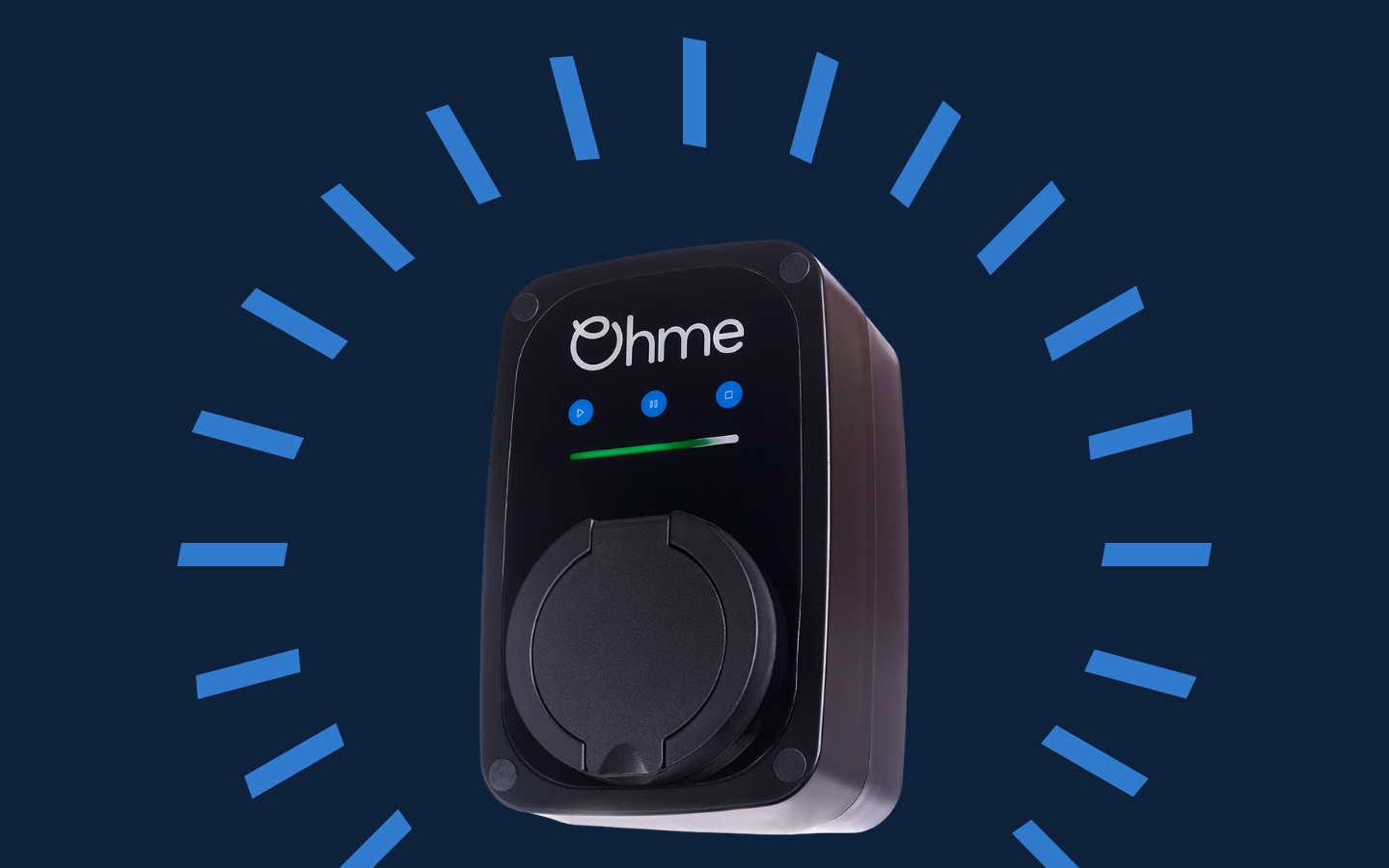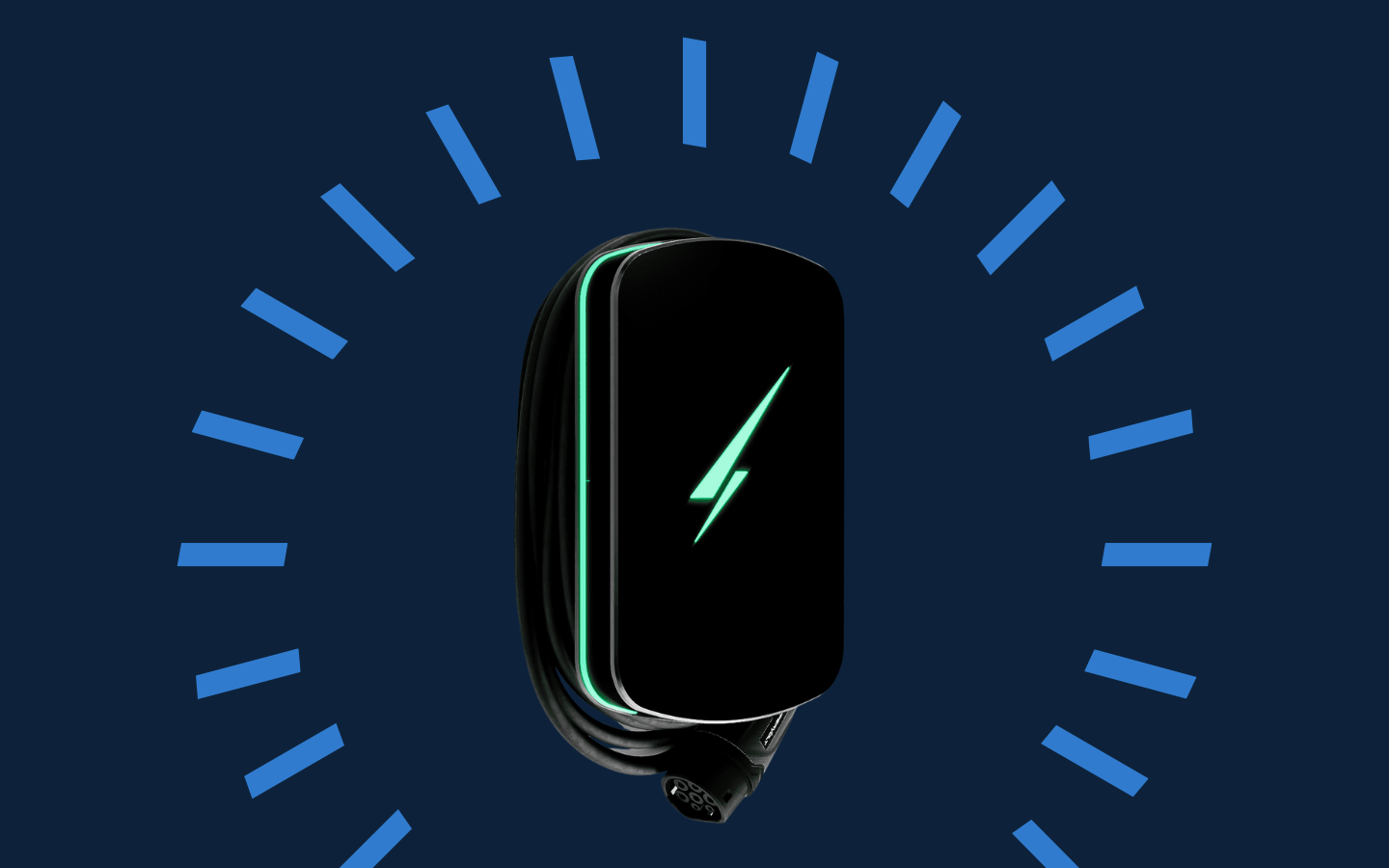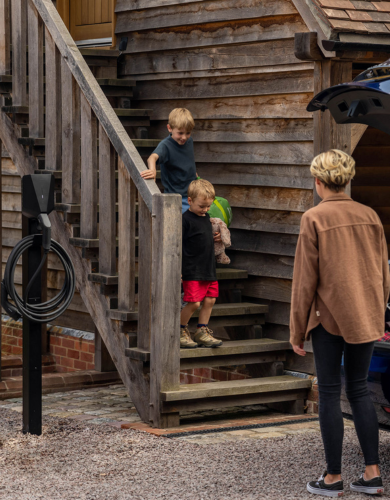
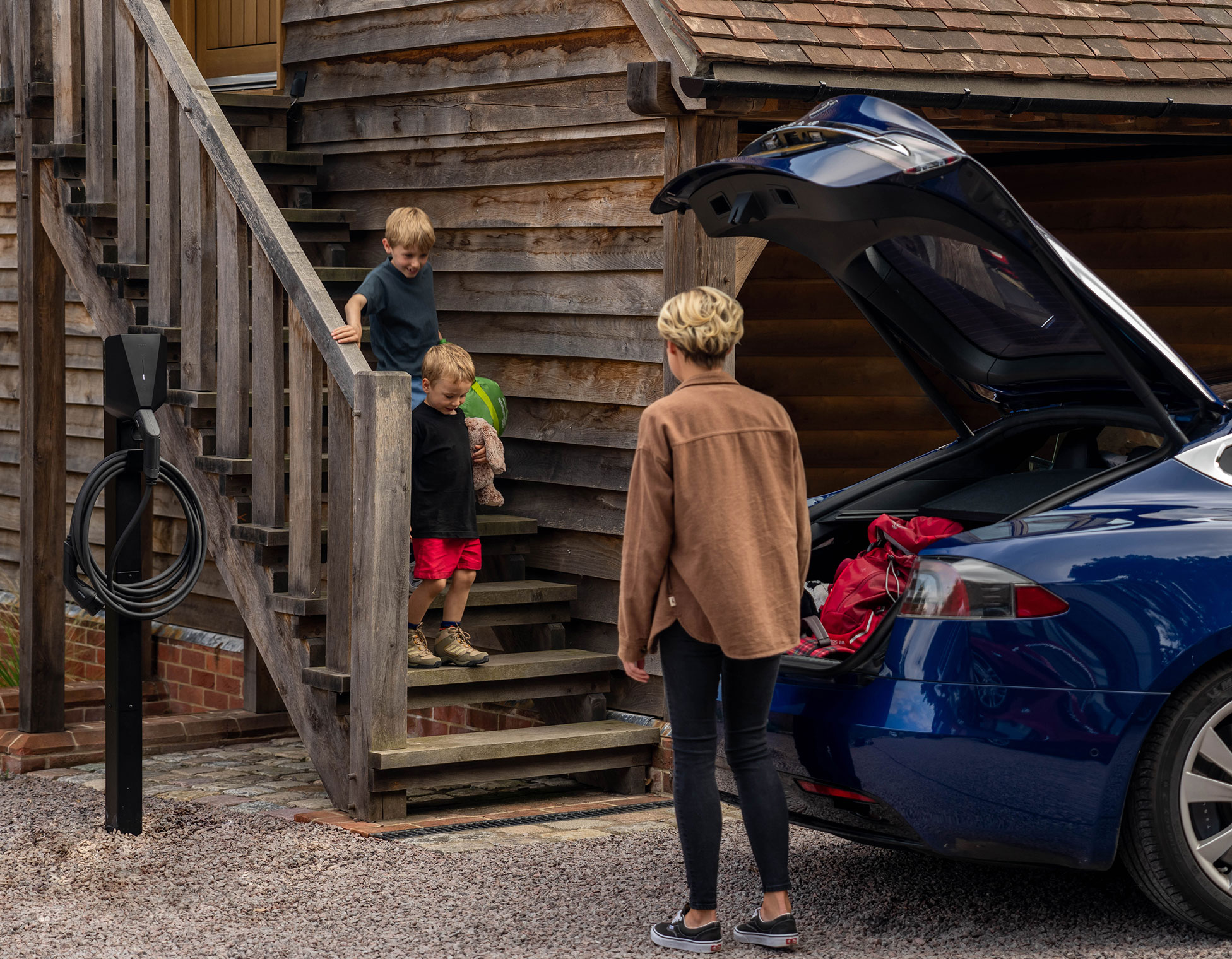
Home EV charger installation
What is home charging?
A home electric vehicle charger, often referred to as a “home EV charger”, “home electric car charger”, or “smart EV charger”, is a device that allows you to charge your electric car conveniently and efficiently from the comfort of your own property. The EV home charger serves as your personal refuelling station, offering a fast, convenient solution for topping up or fully charging your EV’s battery whenever you need it.
Our range of home EV chargers
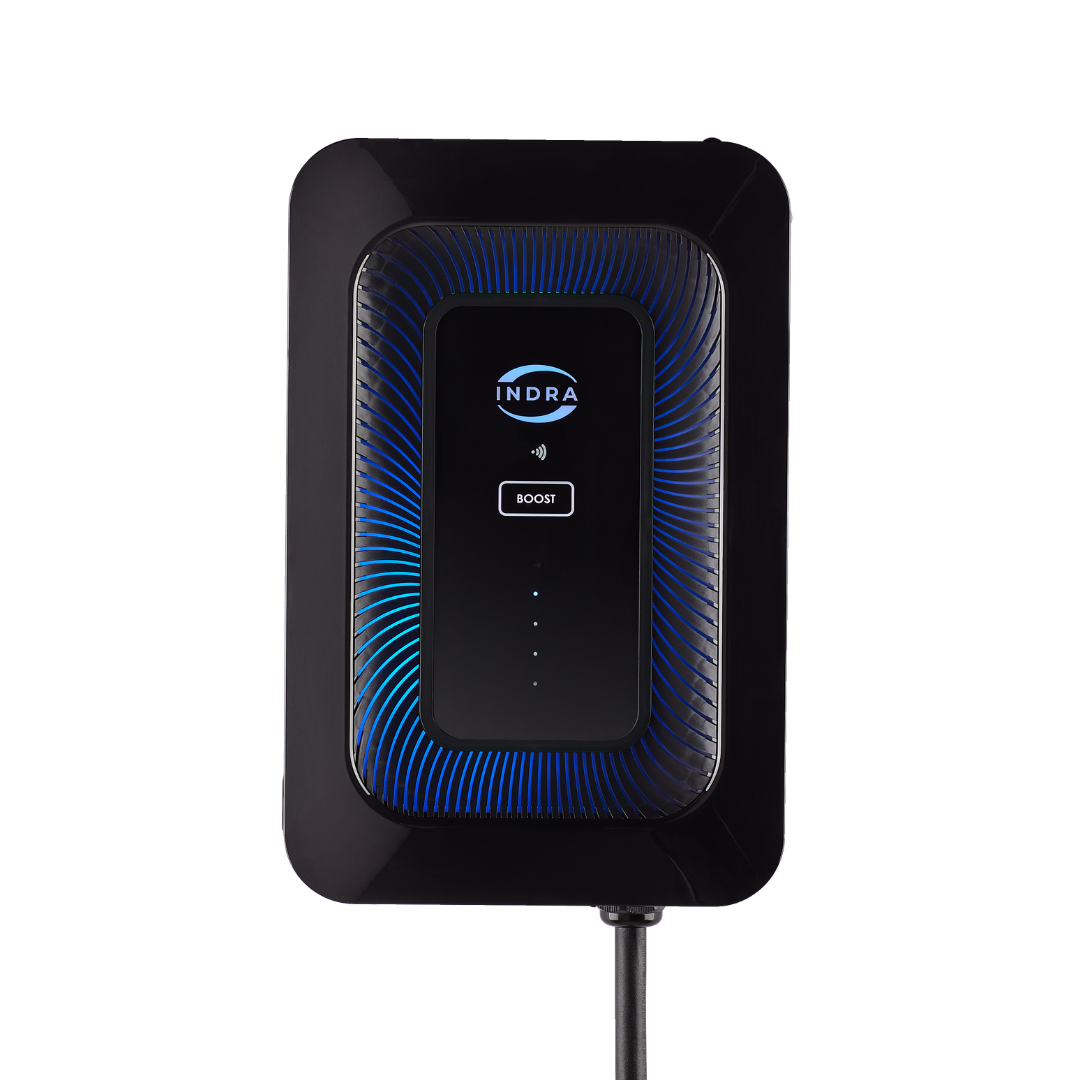
Indra Smart LUX
Installed from only £1,099

Hive Mini Pro 3
Installed from only £1,219

Ohme ePod
Installed from only £999
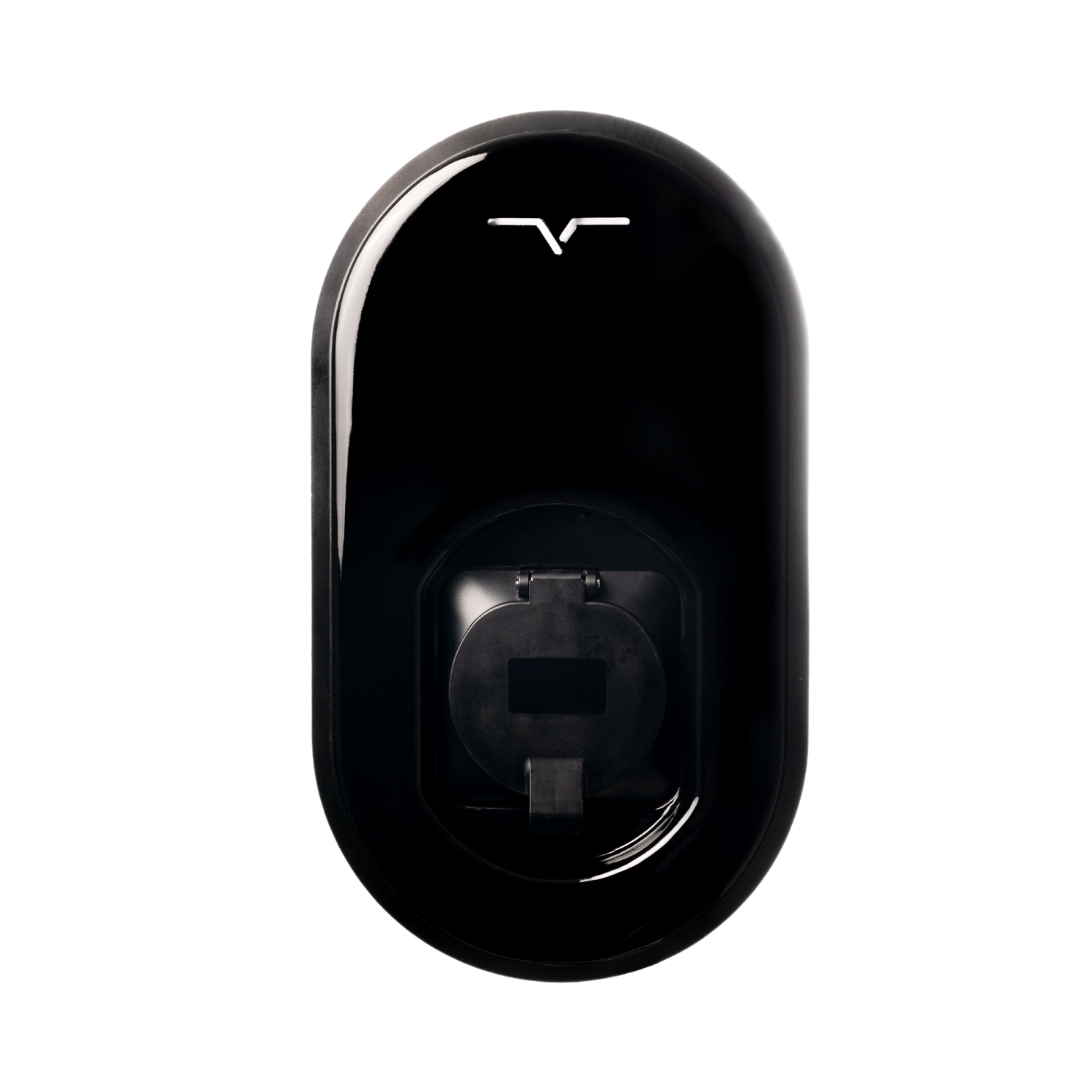
VCHRGD Seven Pro
Installed from only £869

Easee One
Installed from only £1,099
(£26 per month)

Evec
Installed from only £849

Indra Smart PRO
Installed from only £949
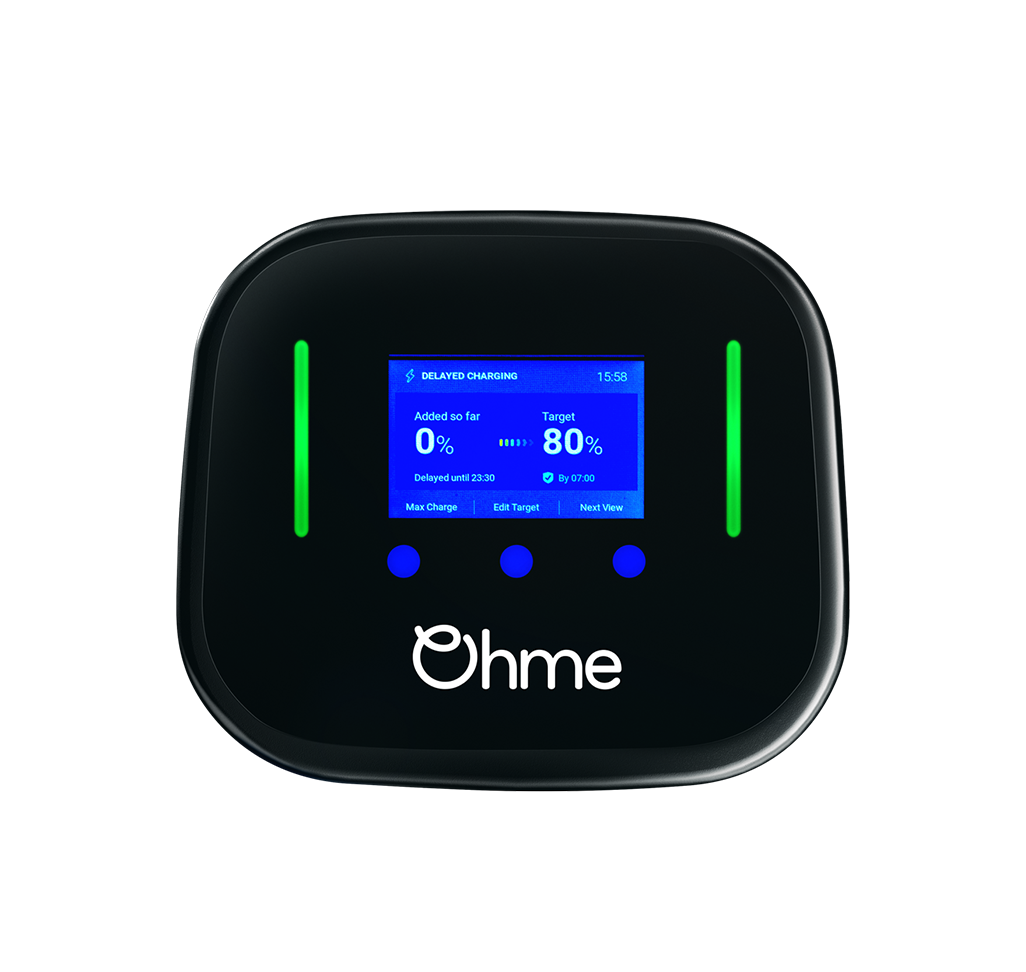
Ohme Home Pro
Installed from only £1,049
(£25 per month)

Indra Smart PRO - Black
Installed from only £970
What we offer:
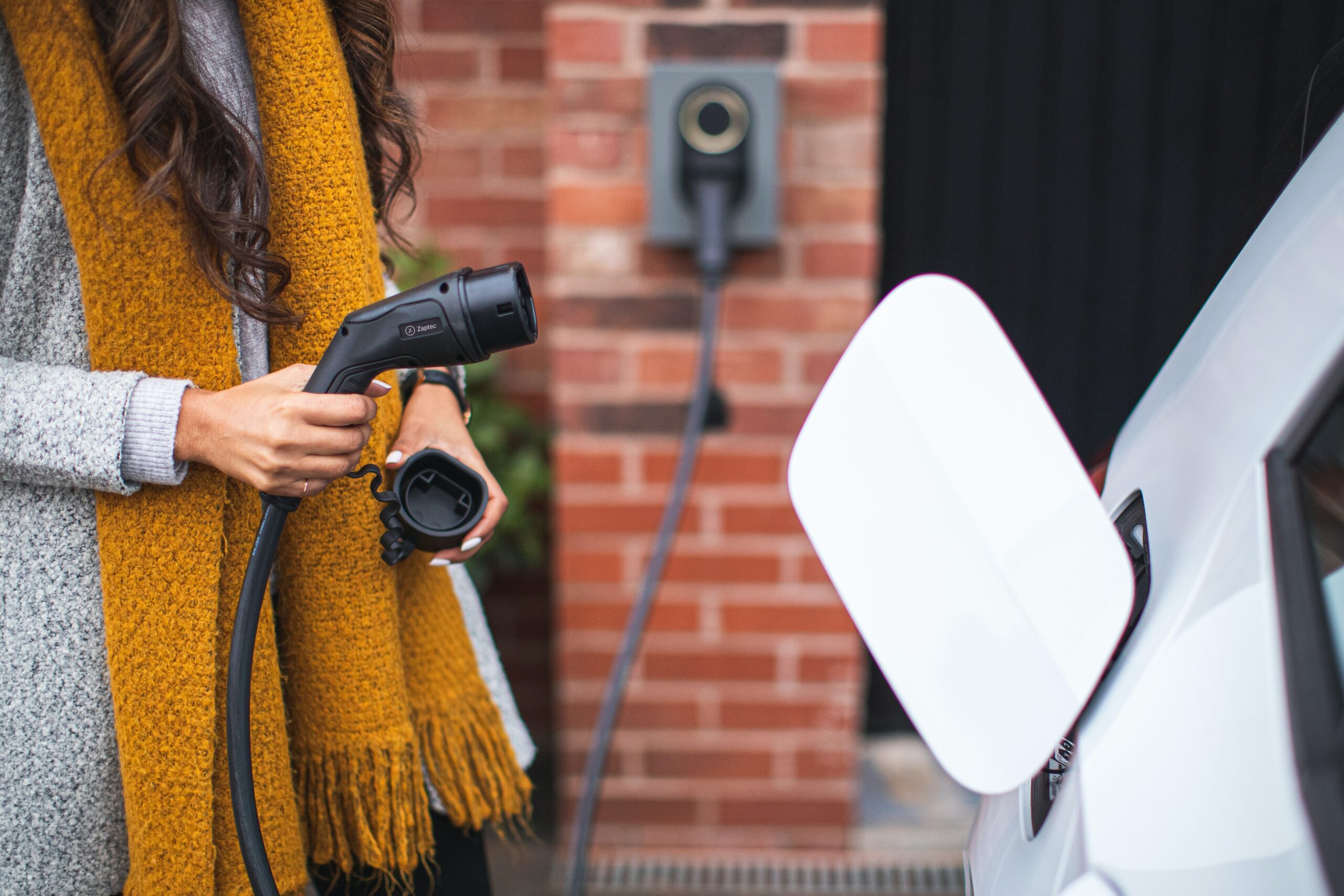
Nationwide home EV charger installation
We offer nationwide EV home charger installation near you, delivered locally by fully trained, vetted and accredited expert EV charger engineers.
Trusted home EV charger installation experts
Accredited by OZEV, TrustMark, and ISO (ISO 9001, ISO 14001 and ISO 45001), safe, sustainable and high-quality service is guaranteed with every home EV charger installation we undertake.
And, with over fifteen thousand EV charger installations across the UK since 2021, an ‘Excellent’ Trustpilot rating, and seven days a week UK-based dedicated support, you have peace of mind that you are in safe hands for your electric car charger home installation.
Comprehensive, end-to-end home EV charging packages
Our comprehensive EV charger installation service ensures a hassle-free home EV charger installation from start to finish.
DNO application and management, grant paperwork and more are handled on your behalf for a simplified home charging journey.
The best home EV chargers on the market
Tried, tested, and hand-selected, we partner only with leading home electric car charger manufacturers to offer you a range of the smartest, safest, and best home EV chargers on the market —and provide you with unbiased advice.
All our home EV chargers are compliant with the latest Smart Charging Regulations, and we have home charging solutions that are compatible with all electric cars and hybrids, including Type 1 or Type 2 electric cars.
Nationwide home EV charger installation
We offer nationwide EV home charger installation near you, delivered locally by fully trained, vetted and accredited expert EV charger engineers.
Trusted home EV charger installation experts
Accredited by OZEV, TrustMark, and ISO (ISO 9001, ISO 14001 and ISO 45001), safe, sustainable and high-quality service is guaranteed with every home EV charger installation we undertake.
And, with over fifteen thousand EV charger installations across the UK since 2021, an ‘Excellent’ Trustpilot rating, and seven days a week UK-based dedicated support, you have peace of mind that you are in safe hands for your electric car charger home installation.
Comprehensive, end-to-end home EV charging packages
Our comprehensive EV charger installation service ensures a hassle-free home EV charger installation from start to finish.
DNO application and management, grant paperwork and more are handled on your behalf for a simplified home charging journey.
The best home EV chargers on the market
Tried, tested, and hand-selected, we partner only with leading home electric car charger manufacturers to offer you a range of the smartest, safest, and best home EV chargers on the market —and provide you with unbiased advice.
All our home EV chargers are compliant with the latest Smart Charging Regulations, and we have home charging solutions that are compatible with all electric cars and hybrids, including Type 1 or Type 2 electric cars.
Use our tools to discover more about your charging
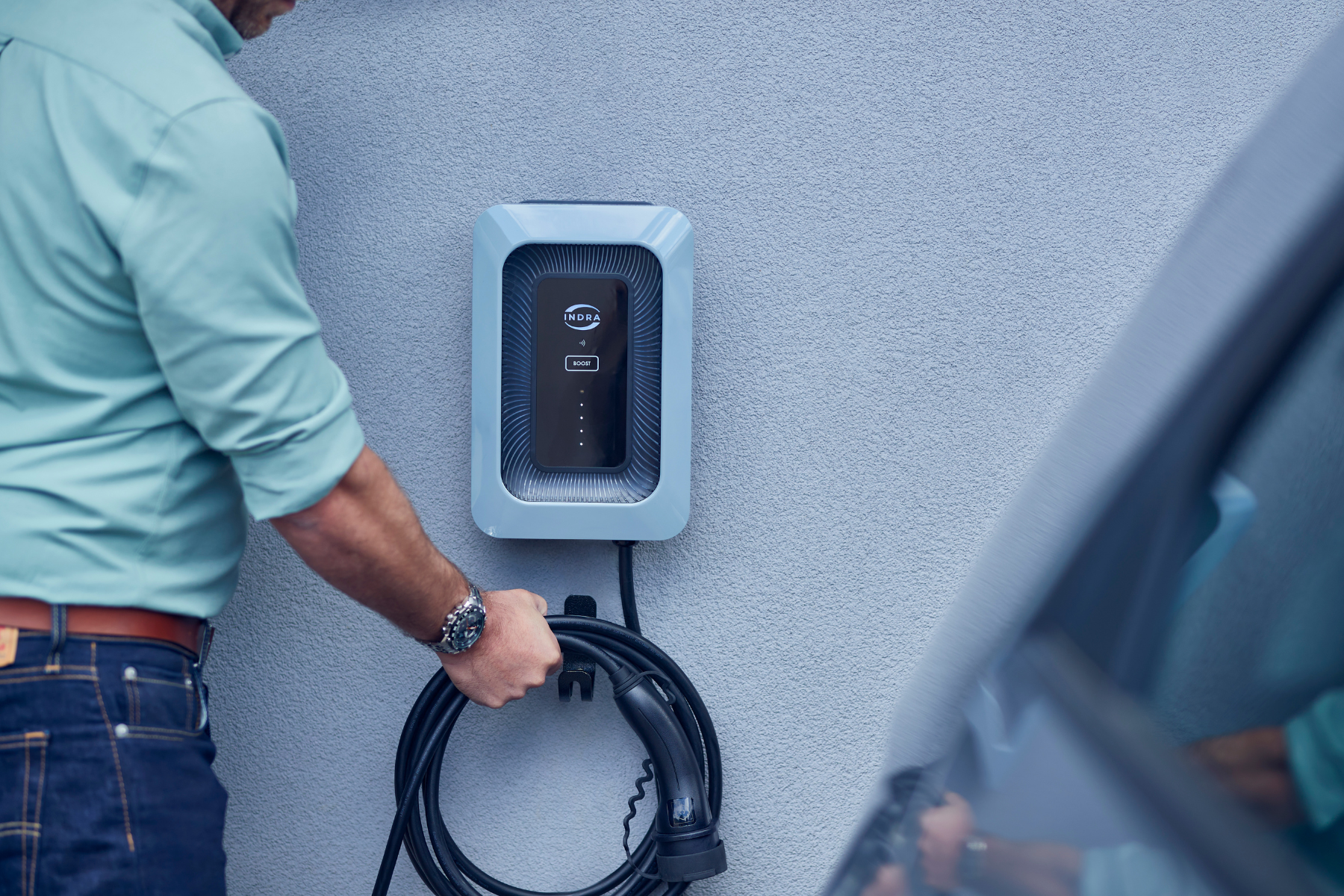
Time Calculator
Use our fast, free EV charging time calculator to find out how long it will take to charge your electric car.
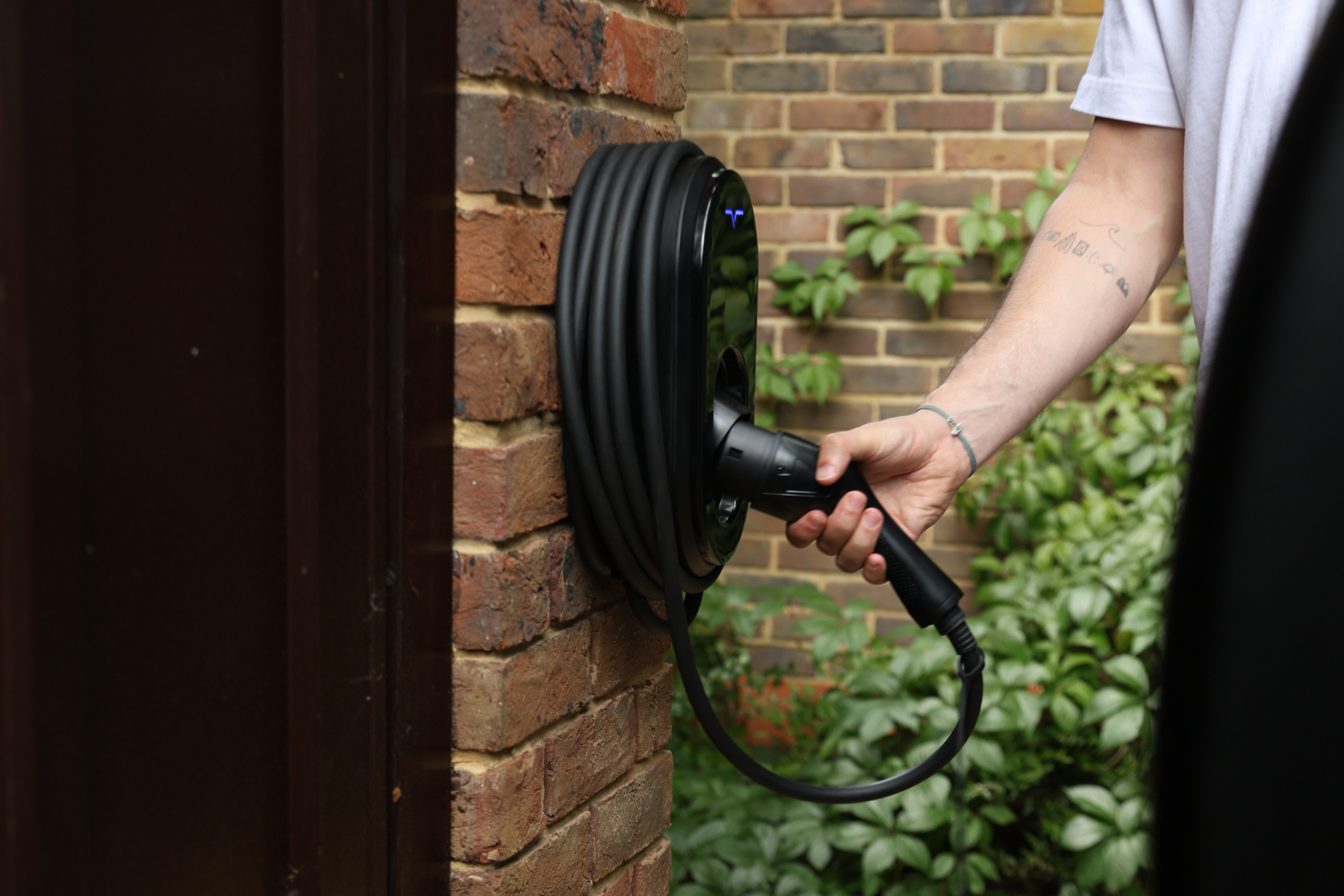
Cost Calculator
Discover how much it costs to charge your electric car at home with our EV charging cost calculator.
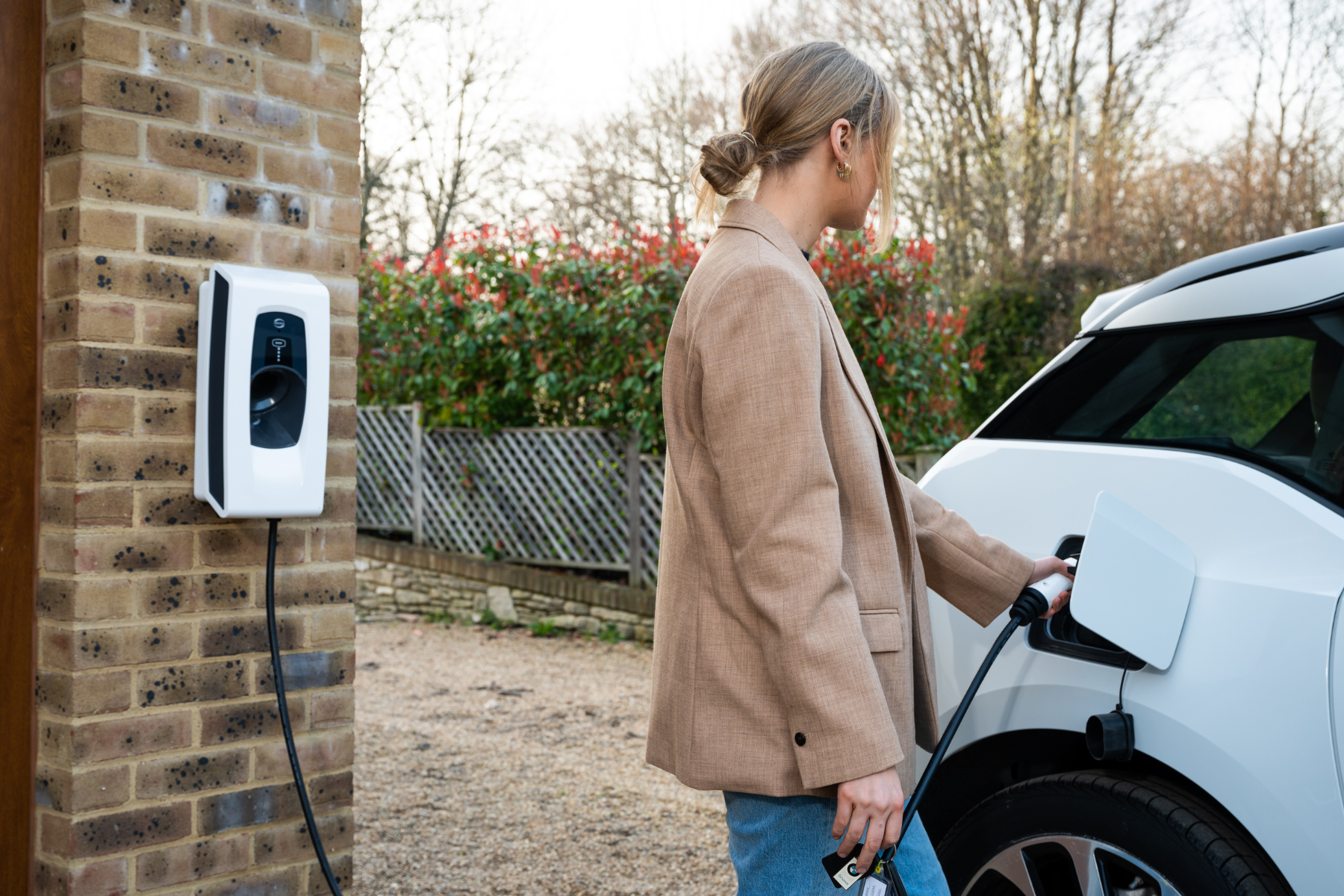
Compare chargers
Compare EV charger features, speeds and more with our comparison tool.

Time Calculator
Use our fast, free EV charging time calculator to find out how long it will take to charge your electric car.

Cost Calculator
Discover how much it costs to charge your electric car at home with our EV charging cost calculator.

Compare chargers
Compare EV charger features, speeds and more with our comparison tool.
Why invest in a home EV charger?
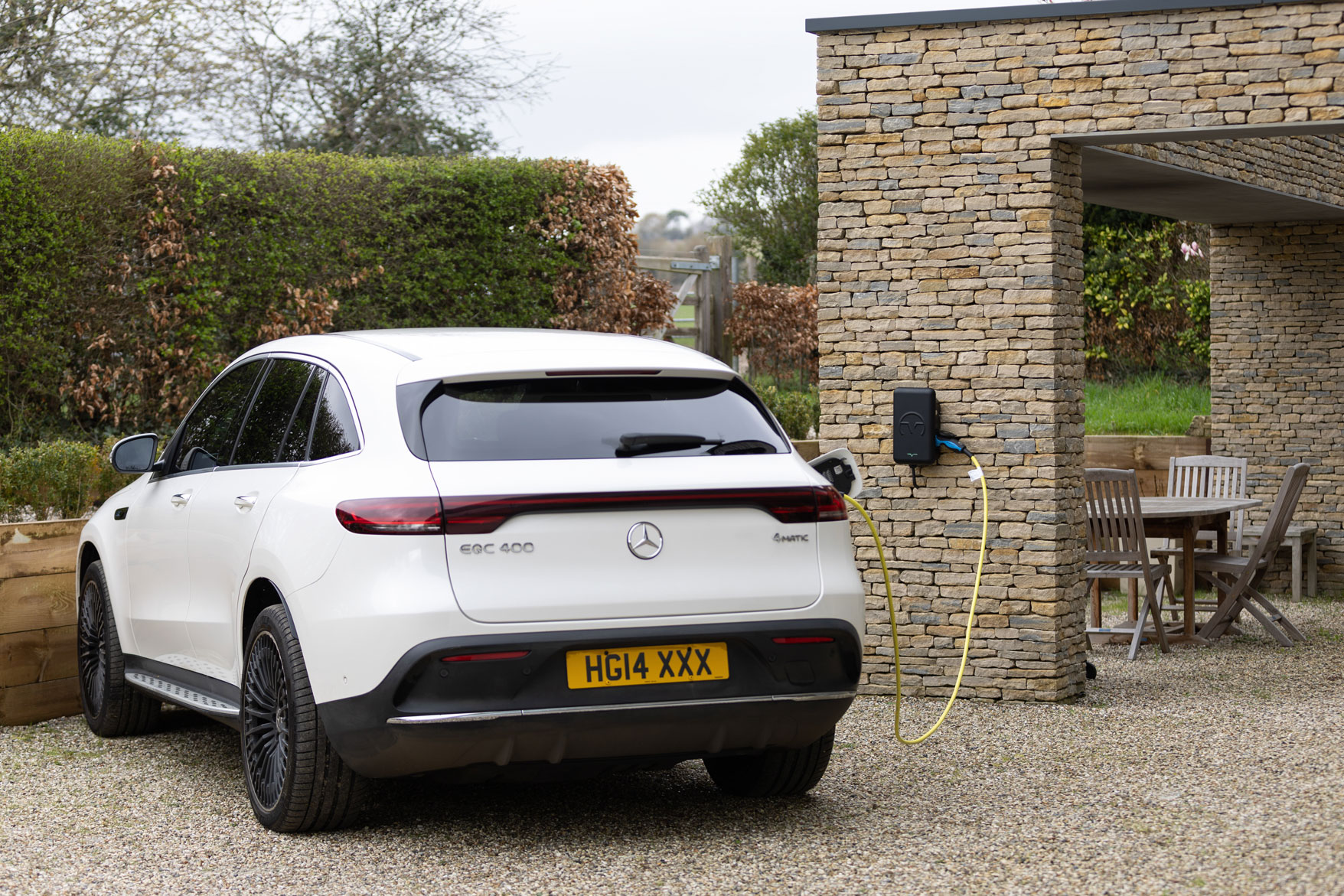
Charge 300% times faster than a three-pin plug with an EV car charger for home
A 7kW home EV charger is 300% faster at charging an electric car battery than using a three-pin plug, shortening the time it takes to charge your battery threefold.
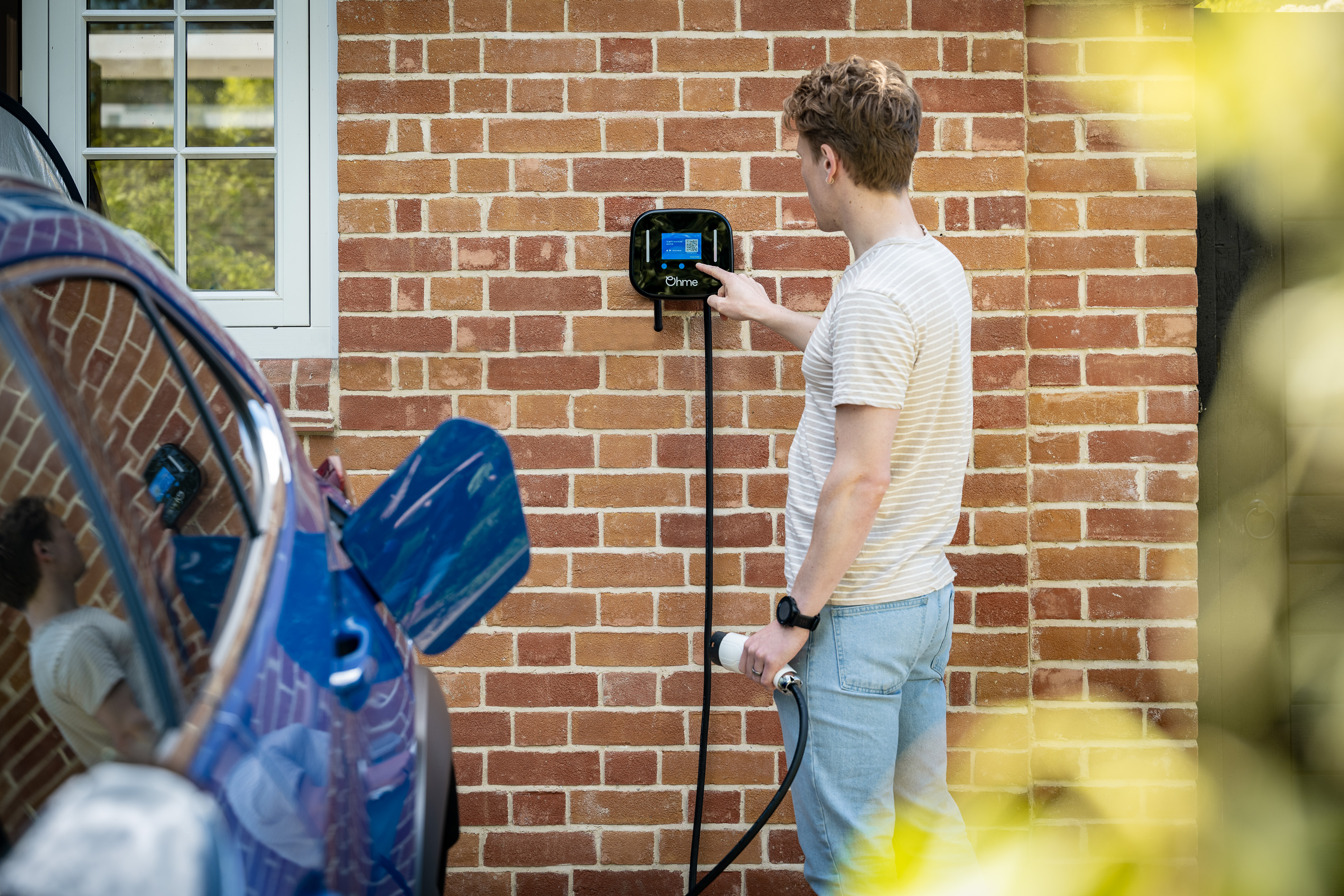
Increase your property value
Investing in an EV home charger can boost the value of your property and appeal to homeowners who have already switched to electric.
Futureproof your property with an EV home charger today.
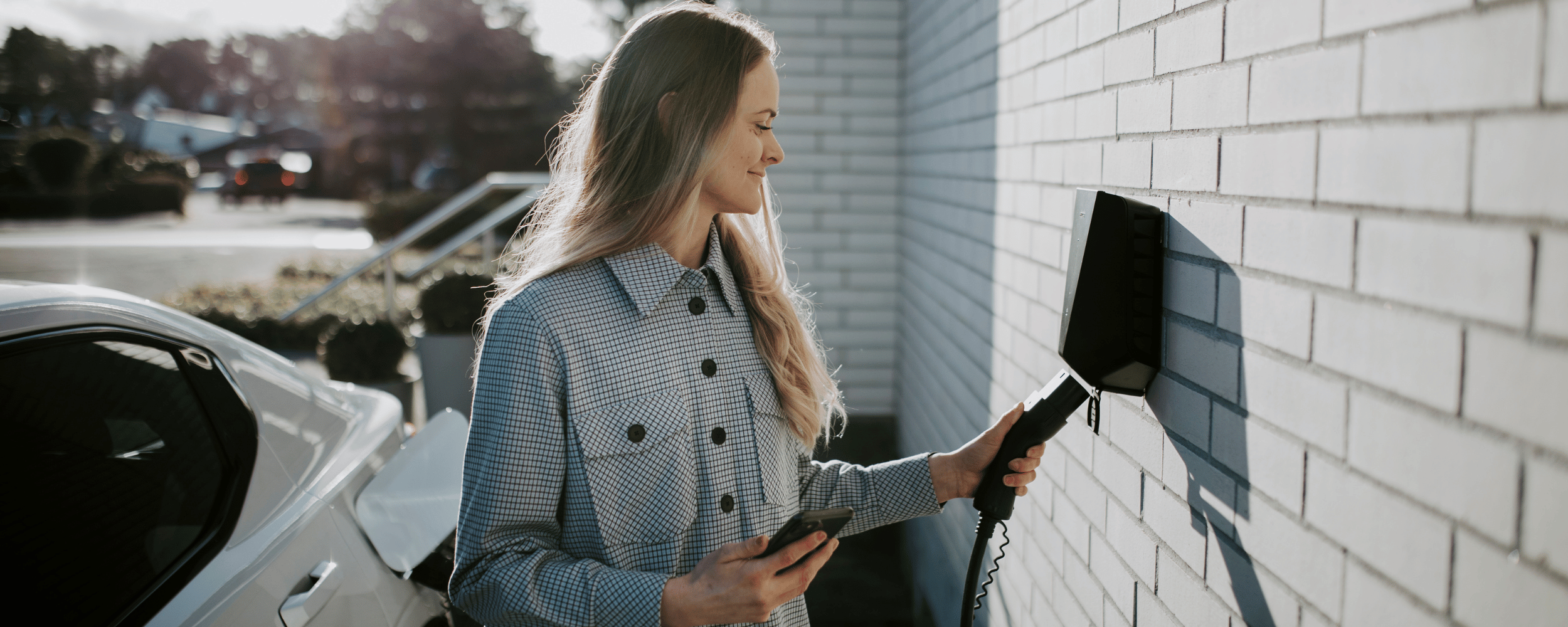
Maximum convenience
No longer will EV owners have to queue at busy public chargers or wait over 18 hours to have sufficient charge with a three-pin plug; smart home EV chargers promise ultimate convenience.
Simply plug in and relax – your home charger will do all the work for you.
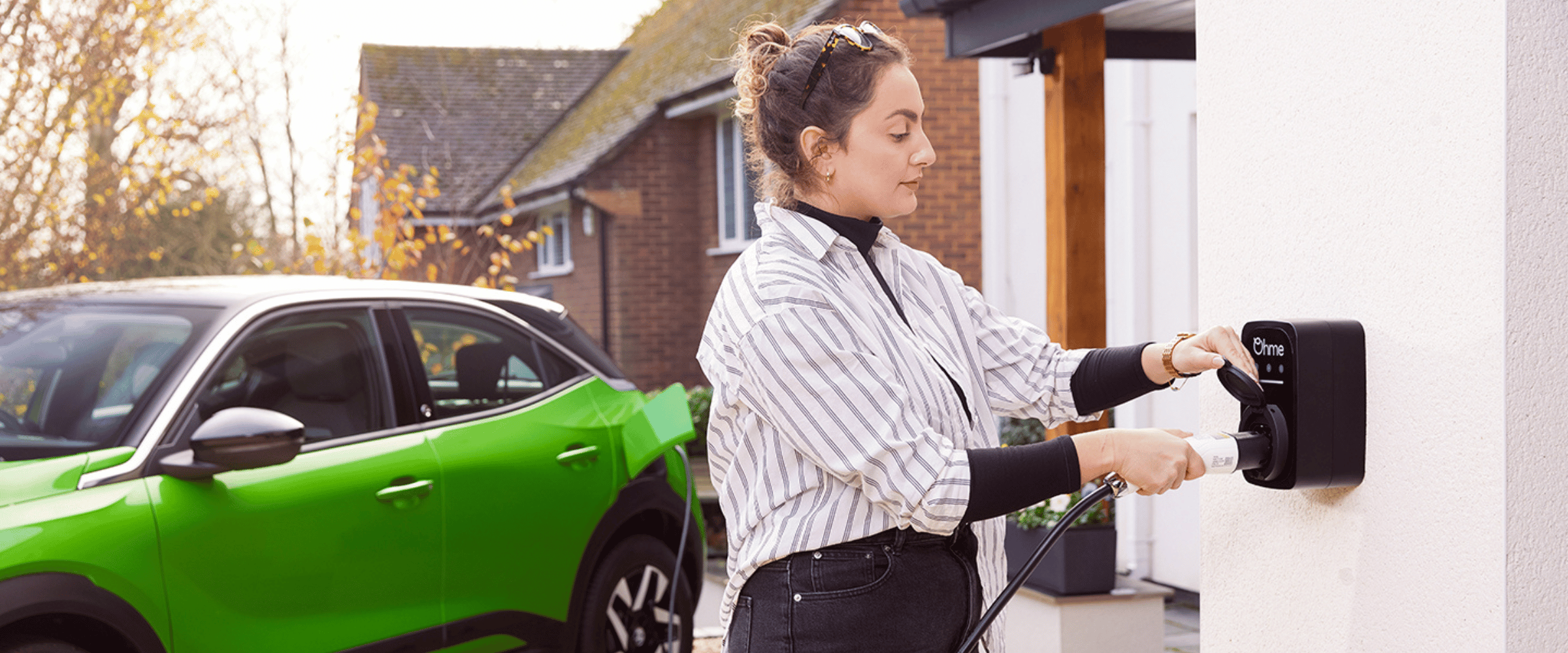
Reduce EV charging costs
All smart home EV chargers come with the popular charge scheduling feature. Use this popular feature to pre-set your electric car to charge during off-peak hours of 12am-5am for significantly lower electricity prices and cheaper home charging costs.
Supercharge your savings further with innovative smart features such as solar compatibility and energy tariff compatibility.
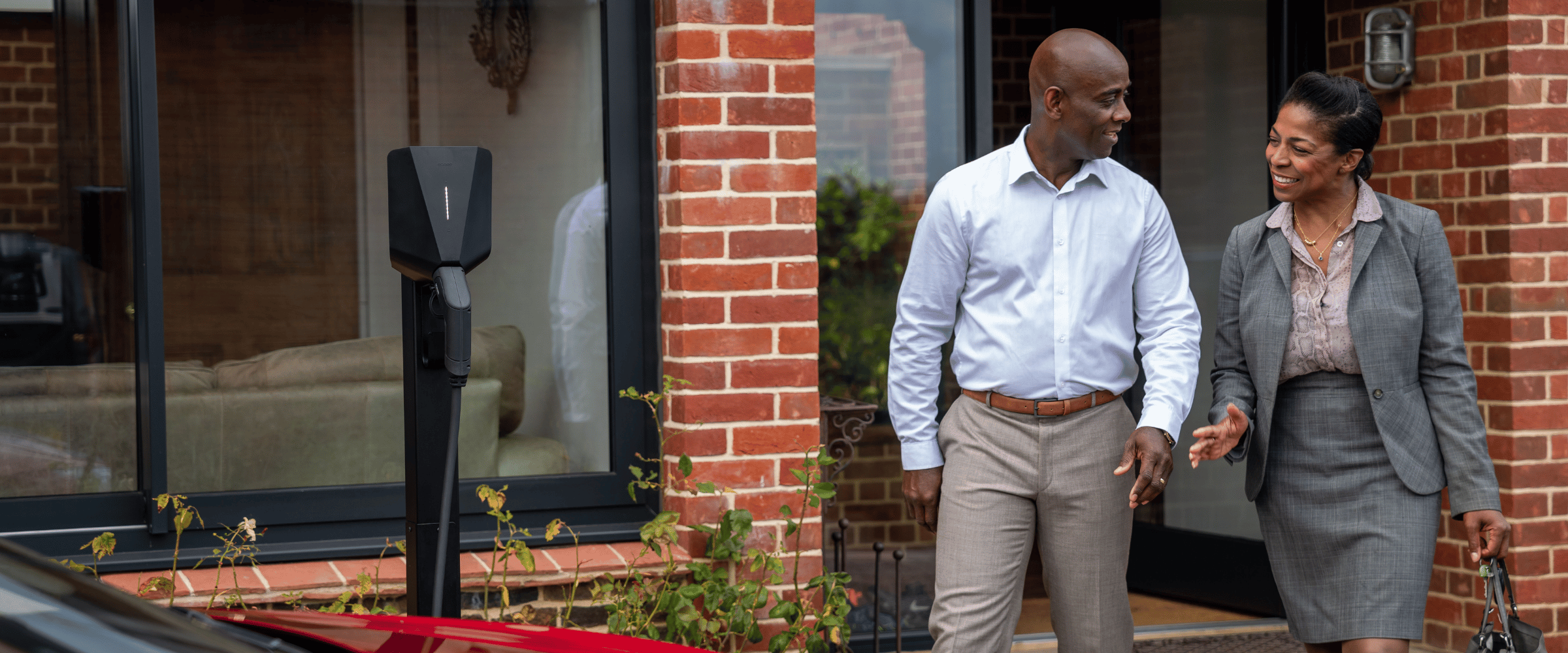
Safe home EV charging sessions
With properly installed and compliant home EV chargers, you have peace of mind knowing you are protecting your electric car, home and family by investing in safe, robust, and weatherproof technology built to last.
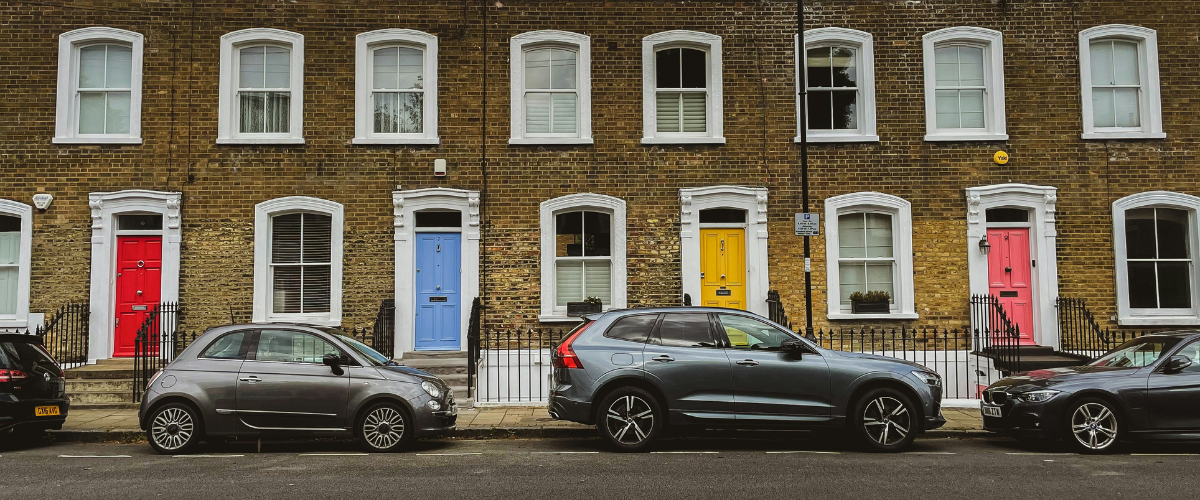
GOVERNMENT GRANT SUPPORT
In addition to the support for people living in apartments and rented accommodation, the Office of Zero Emission Vehicle’s (OZEV) recently announced a grant to help those without dedicated off-street parking via the new Electric Vehicle Chargepoint Grant for Households with On-street Parking.

Charge 300% times faster than a three-pin plug with an EV car charger for home
A 7kW home EV charger is 300% faster at charging an electric car battery than using a three-pin plug, shortening the time it takes to charge your battery threefold.

Increase your property value
Investing in an EV home charger can boost the value of your property and appeal to homeowners who have already switched to electric.
Futureproof your property with an EV home charger today.

Maximum convenience
No longer will EV owners have to queue at busy public chargers or wait over 18 hours to have sufficient charge with a three-pin plug; smart home EV chargers promise ultimate convenience.
Simply plug in and relax – your home charger will do all the work for you.

Reduce EV charging costs
All smart home EV chargers come with the popular charge scheduling feature. Use this popular feature to pre-set your electric car to charge during off-peak hours of 12am-5am for significantly lower electricity prices and cheaper home charging costs.
Supercharge your savings further with innovative smart features such as solar compatibility and energy tariff compatibility.

Safe home EV charging sessions
With properly installed and compliant home EV chargers, you have peace of mind knowing you are protecting your electric car, home and family by investing in safe, robust, and weatherproof technology built to last.

GOVERNMENT GRANT SUPPORT
In addition to the support for people living in apartments and rented accommodation, the Office of Zero Emission Vehicle’s (OZEV) recently announced a grant to help those without dedicated off-street parking via the new Electric Vehicle Chargepoint Grant for Households with On-street Parking.
What’s the difference between a smart EV home charger and a three-pin plug?
Home EV charging refers to the process of charging an electric vehicle’s battery using electricity from the electricity grid. This can be done with either a three-pin plug (granny charger) or a dedicated smart EV charger installed on your property.
The main difference between these home chargers is that smart home chargers are designed to provide a safer, faster, and smarter way to replenish your electric car’s battery, with cost savings built into the core. In contrast, three-pin plugs are recommended for use only in emergencies.
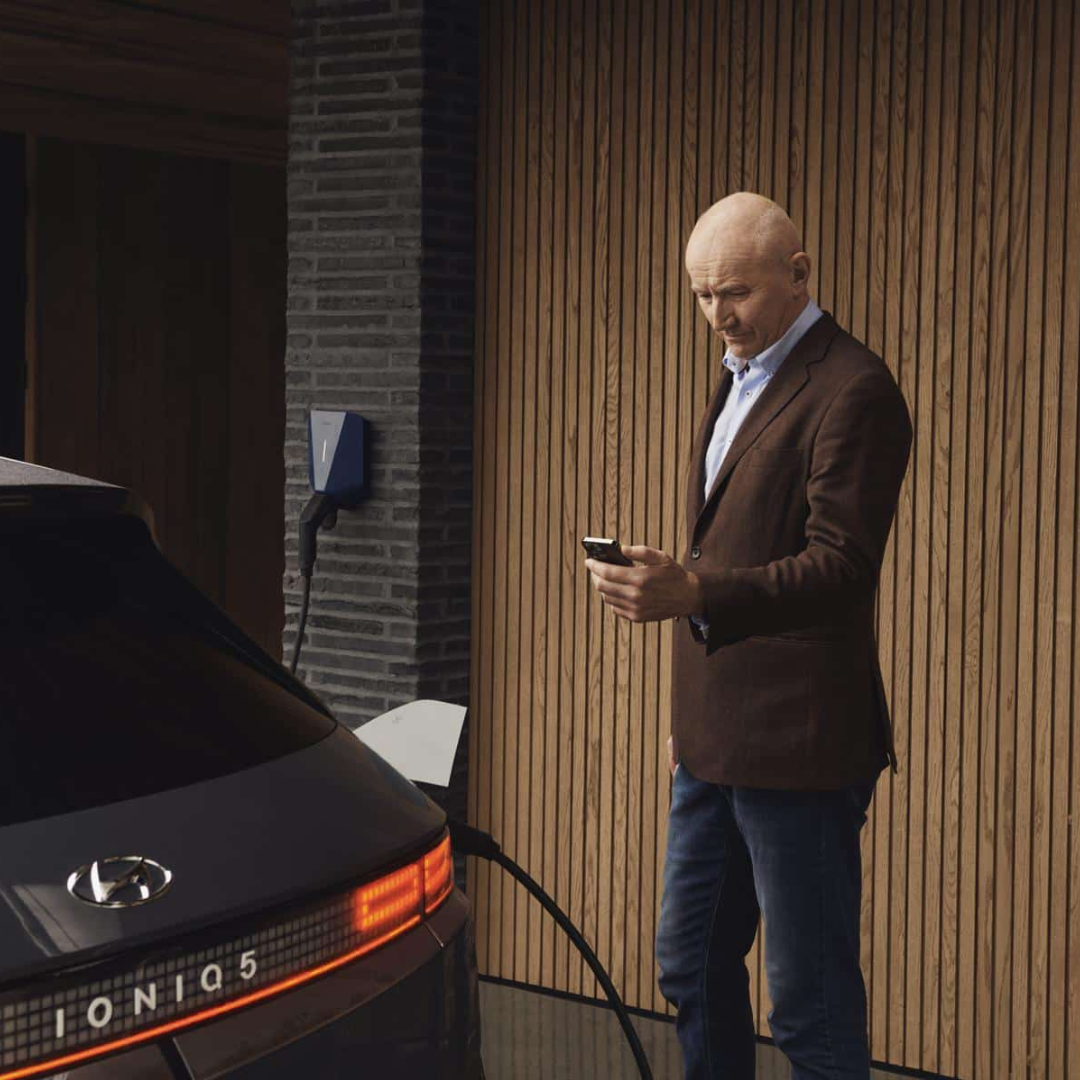
Can I get an EV charger at home?
Installing an EV charger at home is complex, unlike purchasing an iPhone or laptop charger.
To have an EV charger installed on your property, you need:
- Designated off-street parking (such as a garage or driveway)
- To own the property or obtain the relevant permission from the relevant party
- A stable Wi-Fi or 4G connection for smart functionality to work
- Installation to be undertaken by a qualified OZEV-approved professional
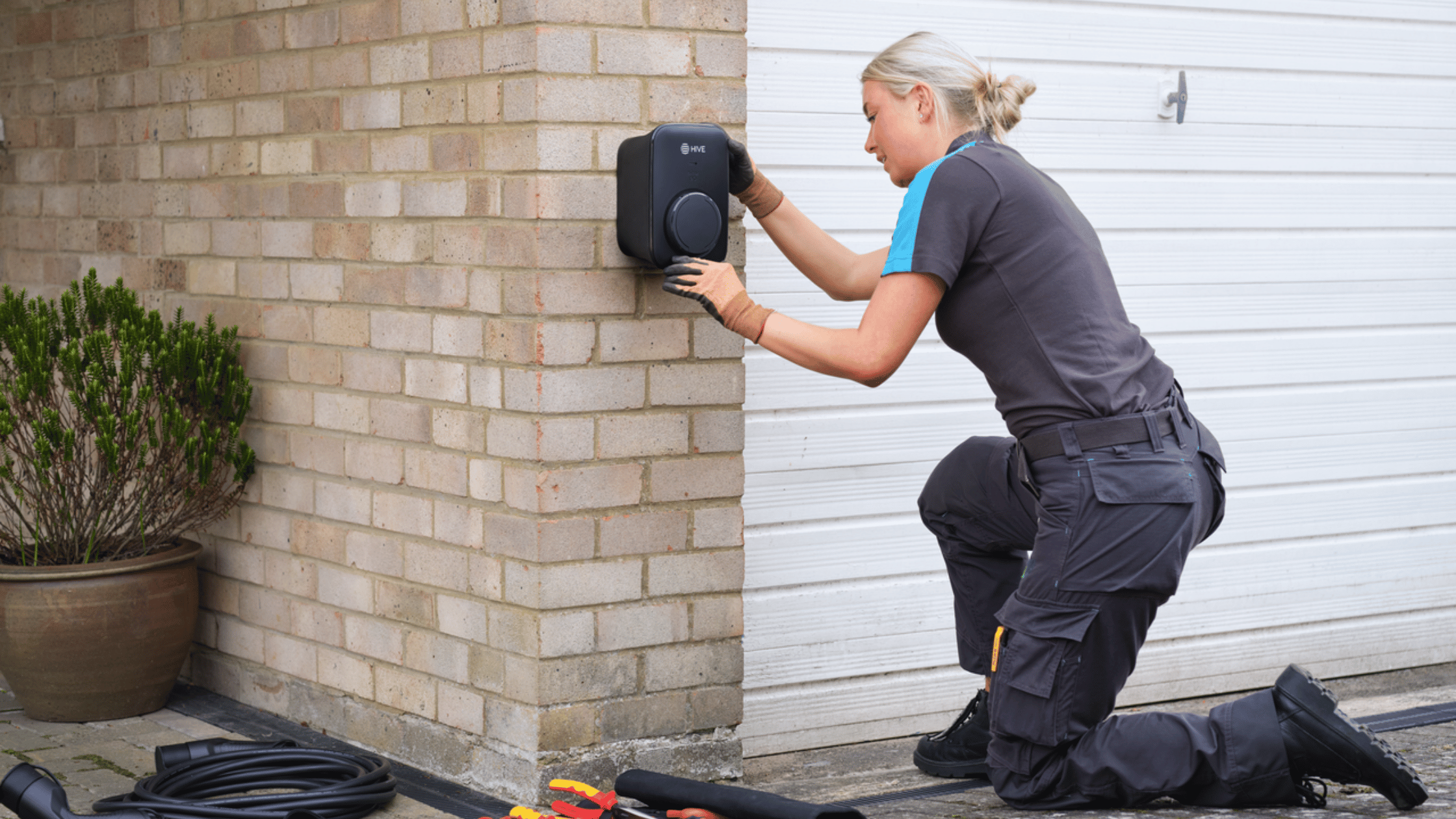
How to get a home EV charger
From click to charge – get your EV charger installation quote in seconds.
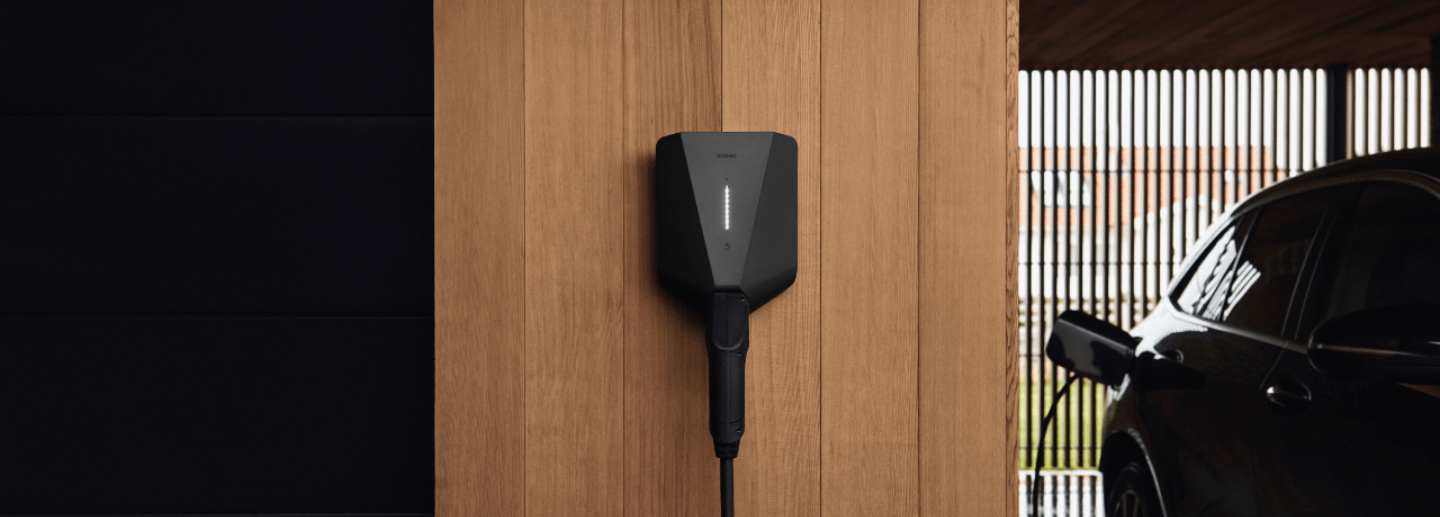
Home EV charging FAQs
What's included in our home EV charger standard installation package?
- Fitting of a single phase 7kW (up to 7.4kW) home EV charger to a brick or plaster wall or other suitable permanent structure
- Up to 10 metres of cable – run and neatly clipped to the wall between the electricity supply meter/distribution board and the charge point
- Routing of the cable through a drilled hole in a wall up to 500mm (20 inches) thick if this is needed
- The fitting and testing of electrical connections and protections required for the charge point
- An additional three-way consumer unit, if required
- Installation of a Type A RCBO in an RCBO enclosure
- Up to 3 metres of plastic trunking to conceal interior wiring
- An O-pen earth protection device if the charge point requires it
- Up to 4 hours of labour from your installer to complete the work
- Electrical testing of the whole installation
- Handover, setup and testing of the home EV charge point and any compatible app
- A minimum three-year manufacturer warranty and one-year workmanship warranty as standard
- Dedicated UK-based customer support seven days a week (pre and post-installation
- VAT inclusive
- Simple, remote survey mobile and unbiased guidance throughout the EV charging process
- All paperwork for your electric car home charger, including any applicable grants and DNO liaison, completed and managed on your behalf
- Electrical certificate and certificate of compliance
How much does it cost to fit a home EV charger?
Roughly, the price of a single-phase home electric car charger and installation is around £1000 in the UK (for a standard installation). However, each property is different, and some EV charger home installations require more work and materials than others, increasing the installation costs.
Government grants are available to help reduce the cost of installing a home EV charger installation. However, the current EV home charger grants are aimed at EV drivers in rented accommodation.
Are all home EV chargers the same?
No, home EV chargers not only look different but come with different smart charging features at different price points and functionalities.
Home EV chargers also come with a Type 1 or Type 2 connector, meaning your EV must match in order to charge. For example, a Type 2 EV would not be compatible with a Type 1 charger.
When should I order a home EV car charger?
DNO approval is needed for every EV charger installation at home. Sometimes, this can take weeks or months to obtain – especially if your property requires additional work. With this in mind, we recommend purchasing your home EV charger as early as possible.
How long does it take to install a home EV charger?
The time frame for a home EV charger installation fluctuates depending on certain factors, such as whether additional work is needed, whether the installation is standard, and sometimes adverse weather. But on average, our engineers take approximately 2-3 hours for a standard installation.
What's the difference between tethered and untethered home EV chargers?
A tethered home EV charger has an attached cable, whereas an untethered charger has a detachable cable. One is not better than the other; the decision comes down to personal preference.
Can I install an electric car charger at home myself?
You should not install a home EV charger yourself, as there are rules, regulations, and laws to be followed to ensure a safe and compliant installation.
What's the fastest home EV charger I can get?
Only fast home EV chargers are available for domestic use. Rapid or ultra-rapid chargers like those found at motorways and supermarkets cannot be installed at home as they require DC electricity.
The fastest home electric vehicle charger is a 22kW charger, which requires a three-phase electricity supply. However, the most common power output of a home charger is 7kW, or 7.4kw – the industry standard.
What our customers say_
Related articles

